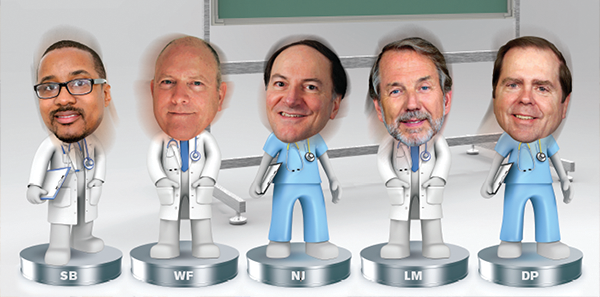
SB: Specifically for democratic practices, I think in the next five to 10 years we’re going to see increased integration across the acute-care continuum. I think that you will likely also see an increase in the scale of democratic practice compared to what has traditionally been known. I think that all practices are going to have to demonstrate value for their patients, and this will require a certain amount of innovation.
Explore This Issue
ACEP Now: Vol 35 – No 01 – January 2016DP: I think the next two to three years are going to be tumultuous. Five years from now, I think emergency medicine will be known for three things. First, the traditional: if you’re really sick or hurt, it’s the only place to go. Second, we will be noted to be the best urgent care diagnosticians in the world. Third, I think we will be experts on transitions of care, particularly in those transitions not only into the hospital to decrease length of stay but also transitions into the community. I think it’s a great future.
LM: I think the emergency department will see much higher acuity. I do think there will be a lot of success with moving patients out to urgent care and providing care by telemedicine. If you look at the percentage of patients on the exchange that are picking high-deductible health plans and knowing that many of those patients are going to have a really hard time paying those bills, we think more and more people are going to go toward places that they perceive as best value. Additionally, emergency medicine will have greater and greater responsibility for cost. The last thing is integration, both in hospital medicine and with post-acute care.
RM: I really want to thank you for sharing your insights, experience, and perspectives for our readers. Thank you very much.
Pages: 1 2 3 | Single Page




No Responses to “Emergency Medicine Leaders Discuss Role of Democratic Groups in Future of EM”